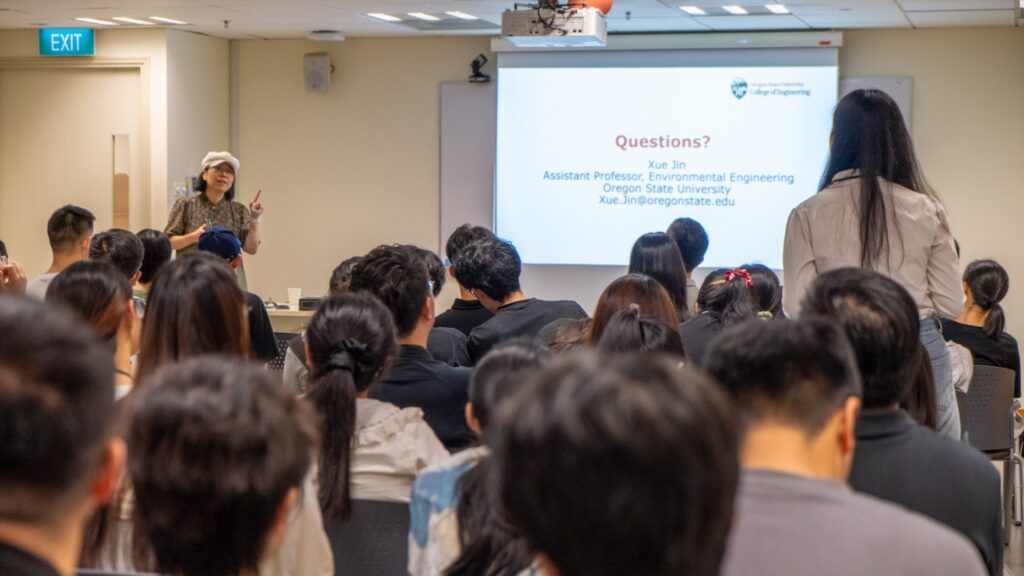The 2025 S3 Sustainability Forum, jointly organized by Fudan University, the National University of Singapore, and Korea University, was held in Shanghai in May 2025. As a strategic collaboration among three universities founded in 1905, the S3 Forum aims to promote interdisciplinary research and education on sustainability. This year’s forum centered around the theme “AI for Sustainability” and featured high-level exchanges between university leaders, thematic sessions on sustainable technology, cities, and policy, as well as the release of a climate-health atlas and the signing of a joint training agreement. The forum served as a dynamic platform for advancing innovation in climate action, urban resilience, and environmental governance through international and intersectoral dialogue.
Zhang Xinyang, a member of the Centre for Water Research (CWR) and Ph.D. candidate at the National University of Singapore, participated as an NUS delegate in the PhD Session. Her presentation, titled “Antibiotics Removal and Antimicrobial Resistance Control by Ozone/Peroxymonosulfate-Biological Activated Carbon” introduced a novel hybrid treatment process designed to mitigate antimicrobial resistance risks in biological activated carbon systems. Her research demonstrated that the O₃/PMS-BAC process significantly outperformed conventional treatments in reducing both antibiotics and antibiotic resistance genes in treated effluent and biofilms. The talk contributed to the forum’s emphasis on data-driven, sustainable technologies and highlighted the importance of integrating chemical oxidation and biological methods to enhance the safety and efficacy of water treatment systems.






